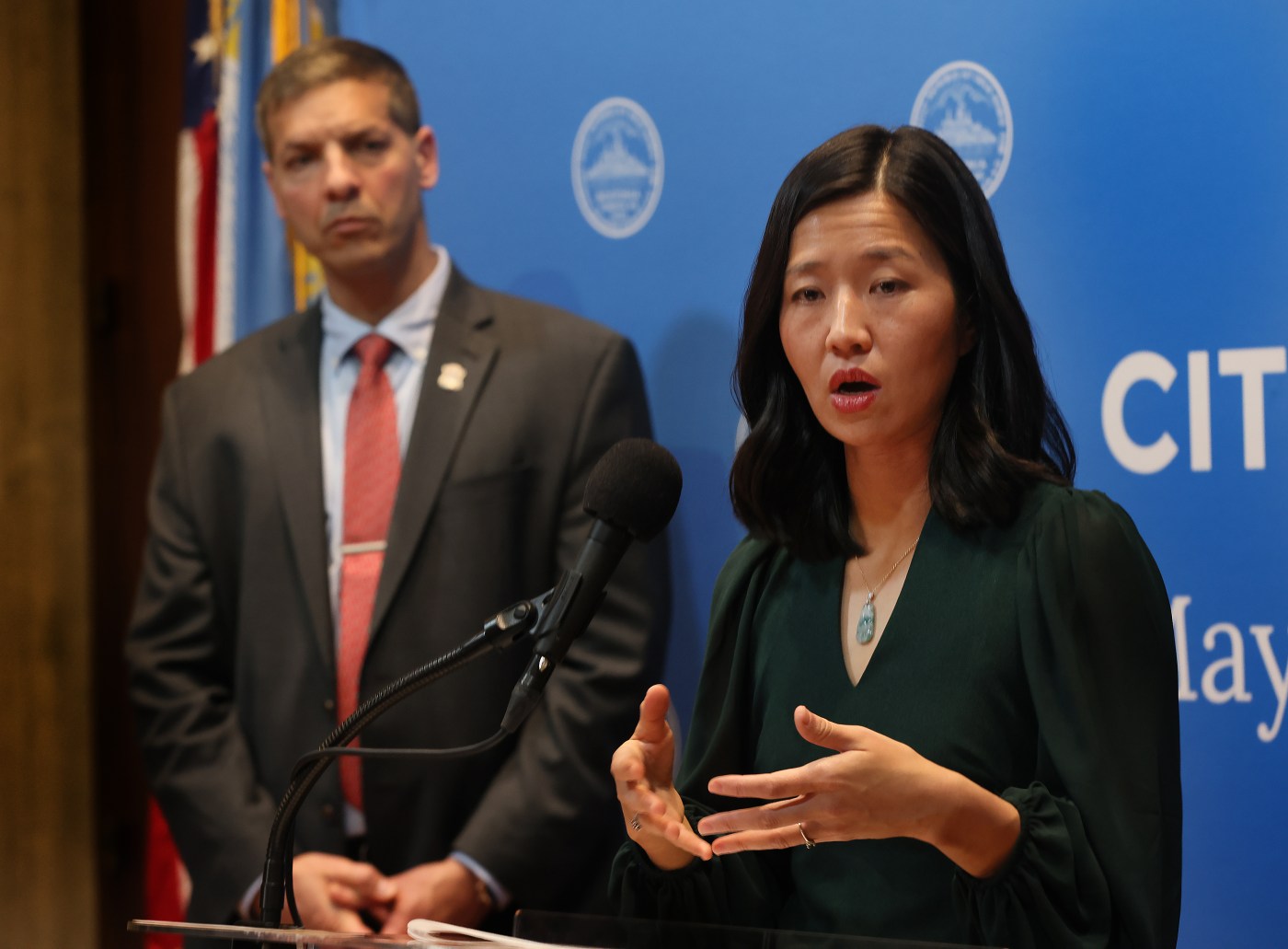
Boston City Council approves ‘historic’ $82 million police contract
The Boston City Council approved a new five-year contract between the city and its largest police union, an $82 million deal that includes a 9% raise in salary and significant reforms around officer discipline, overtime and paid details.
The 12-0 vote on Wednesday brings to a close a process that included 18 months of “intense” negotiations, resulting in what the mayor described as a “historic” agreement that was reached Dec. 1 and ratified by union membership days later.
“We’re ecstatic about it,” said Larry Calderone, union president. “The men and women in the Boston Police Patrolmen’s Association have worked tirelessly over the last three-and-half years and they deserve this thank-you.”
The agreement will cost the city roughly $82.3 million, or a 21% increase over a five-year retroactive period, from July 1, 2020 to June 30, 2025. It includes annual base wage increases for officers of 2%, 1.5%, 2%, 1% and 2.5%.
The two votes taken by the Council authorized the city to reduce the fiscal year 2024 budget appropriation for the collective bargaining reserve account by $16.79 million, and increase the Boston Police Department FY24 budget by $30.79 million, to cover this year’s cost of the contract.
The contract tightens up procedures that had been leading to forced overtime and cracks down on discipline, by eliminating the pathway for suspensions and terminations to be overturned in the arbitration process if an officer is indicted for, or if a sustained internal affairs finding is upheld for specific criminal acts.
That list of offenses includes roughly 30 criminal charges, such as drug trafficking, rape and murder, but two councilors who spoke prior to the vote felt that it didn’t go far enough.
Outgoing Councilors Ricardo Arroyo and Kendra Lara said the list should have included domestic assault and battery, and stated that they were voting ‘yes’ over concerns, citing the “forward movement” of the contract.
Related Articles
Boston City Hall roiled by email party invitation for ‘electeds of color’ sent to all
Boston City Council weighing vote on police contract
Lame duck Boston city councilor skips work in support of Palestinian-led ‘global strike’
Roslindale parking policies in play
Boston city councilors ‘blindsided’ by presentation honoring pro-Palestinian student walkout
Both talked about how the included offenses are at such a high level of criminality that they don’t apply to most instances of prior termination for officers, with others that have led to past disciplinary action left off the list.
“My hope is this opens the door to stronger reforms moving forward,” Arroyo said.
Of the criticism, Calderone said contract negotiations are “a difficult battle between, at least in this issue, the city of Boston, the mayor’s team and my bargaining team.”
“Both sides, they win some and they lose some, so this was a good give and take,” Calderone said. “This was good for the citizens of Boston.”
Lara also said she was also dissatisfied with the hierarchy of how paid details will be allocated under the new agreement. While the lucrative assignments, which with wage boosts will pay $60 to $68 per hour, will be opened up to non-police officers for the first time, she was unhappy that civilians would receive lowest priority.
This would not create new jobs for Boston residents, Lara asserted, a statement that contradicted what was said by two of her colleagues, Brian Worrell and Michael Flaherty, in a Council hearing on the contract held a day earlier.
Mayor Michelle Wu said that roughly 40% of details are going unfilled in the city, something that the “massive change” in the new contract seeks to rectify.
“It will be transformational in how we can keep people safe, but also keep traffic moving,” Wu said Wednesday.
Wu has stated that she plans to move forward with officer use-of-force reforms in the next contract negotiations, a measure that was left off the disciplinary list.
Calderone said the union will be looking to trim the residency requirement — officers have to live in Boston for 10 years before being able to live outside the city — and pursue further educational benefits “because undoubtedly, an educated police officer makes a better police officer.”
This particular deal includes educational incentives for three additional colleges and majors.
It also tightens up medical leave procedures by appointing an independent medical examiner to determine an officer’s fitness to return to work, rather than having the process drag through arbitration when there are disputes between officer and department doctors.
Ten percent of officers were out on medical leave during negotiations, city officials have said.


